Solo-journaling tabletop RPG review: GDEC, Global Dragon Egg Conservation
Jump to:
Skill and age target for GDEC: All ages (reading and writing or help from grown ups required)
Global Dragon Egg Conservation, or GDEC, is a great all-ages friendly solo-journaling tabletop RPG – your goal is to take care of and hatch a set of dragon eggs! There’s no combat or dice, but you will be writing answers to questions and do need to be able to match card numbers and suites to a chart.
For us, even though this is a solo-journaling tabletop RPG, we played it together since my kid can’t read yet. I helped read the questions and table results then recorded my child’s answers. The journaling questions were all great family friendly prompts about how things looked and felt, paying attention to feelings, dealt with problems, etc. GDEC reinforces a lot of key points about mindfulness and caring for others.
GDEC’s conservation focused setting
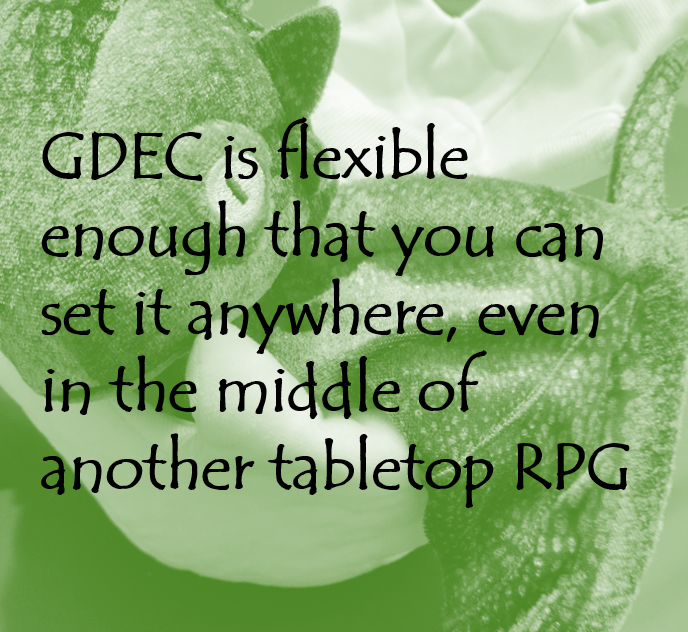
GDEC is a journaling tabletop RPG set in a world where technology has made it difficult for dragons to nest their eggs, so you’re here to help! You’re at a conservation center through the whole game with the world being as you wish from the prompts you’re given (if you care to elaborate into it).
For our game, we imagined that it was our world and that dragons were in hiding, so we were part of a secret group trying to help them care for their babies. GDEC is flexible enough that you can set it anywhere, even in the middle of another tabletop RPG – I could very easily see this being a good exercise for players between weekly TTRPG sessions.
Jumping into your caretaker character
Your character is a helper at a dragon conservation center! You could also play this as being a character from another TTRPG campaign and set up backstory and details, but the primary focus of the game is less on the character details and more on how you personally would handle the given situations.
Because of that, we played it as we were ourselves in the game and we were helping out at the facility. This helped my kid to answer in the way that he wanted versus trying to also think about another character, and it was a really great way to get the pretend play going.
Solo-journaling mechanics: cards and questions
Using playing cards for randomization
The first mechanic for GDEC is using a deck of cards to generate some randomization. Almost each day in the journal, you draw a card to determine some aspect of the dragon eggs you’re protecting, how best to help the eggs, or some problem that you need to face.
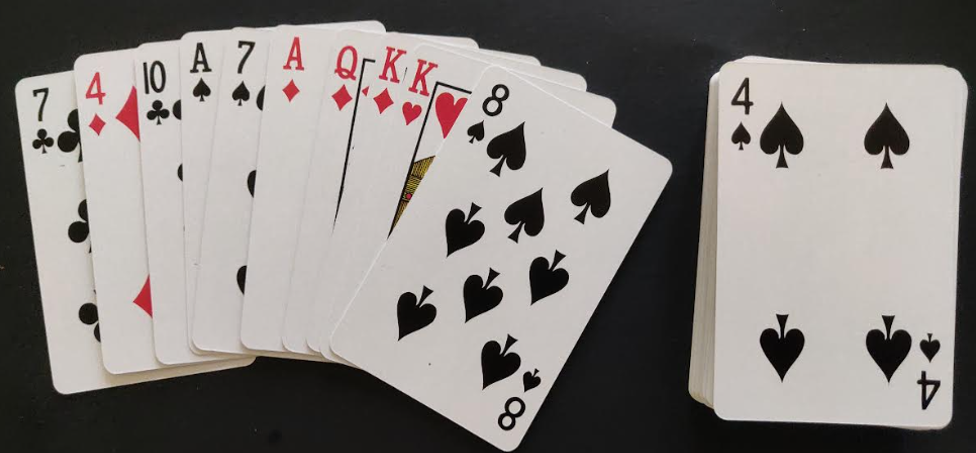
Using playing cards was a really easy way to introduce randomization without needing dice (which can be a concern with little ones in the house), and my child liked holding the card up to the tables to match it to the right spot each time we pulled one. It also gave for a good sized table of options, so we had three totally different dragon eggs to work with: a space egg, an ice egg, and an illusion egg.
This mechanic is nice and simple without needing to use any math, you just need to be able to match the numbers/letters and the symbols, so it works great with little ones who are still working on counting… or with older kids who want to focus on the journaling aspects of the game.
Asking questions for your dragon egg journal
The other, and probably primary, mechanic of GDEC is asking questions! Each day, you ask some questions, often flavored by the cards you drew, about your eggs or events that happen at the facility, and then you answer in your journal.
These prompts were a lot of fun! The journaling questions asked about how the dragon eggs felt or what they looked like, how to set up a nest or habitat, and how to deal with problems at the conservation center. The questions were easy for my kid to understand, and they really sparked his imagination!
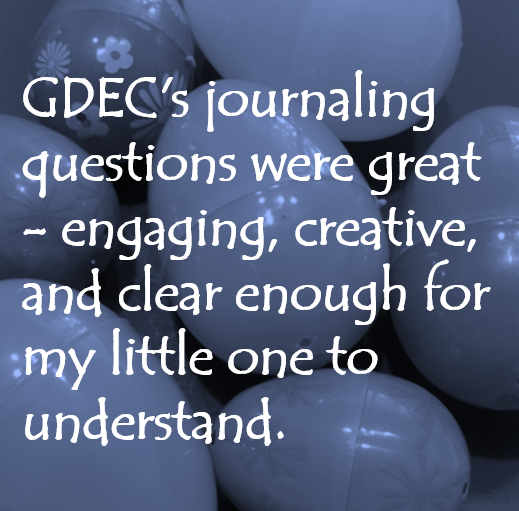
We got some great descriptions out of kiddo for the journal, like, for the first day with our space dragon egg, he said it should be black with little specks that look like stars all over it. Then from the next day’s prompt, we determined that if there was something that our space dragon egg didn’t like (being in the sun too long), the stars would stop shining until it got some rest. I thought that was super creative, and he kept rolling with better and better responses for each egg too.
GDEC’s journaling questions were great – engaging, creative, and clear enough for my little one to understand. They’re perfect for reading to little kids and also great for kids who just want a fun and lighthearted writing activity to work on. It was a great way to really hone in on the role-playing part in “tabletop role-playing games”.
What did my kid think about playing GDEC?
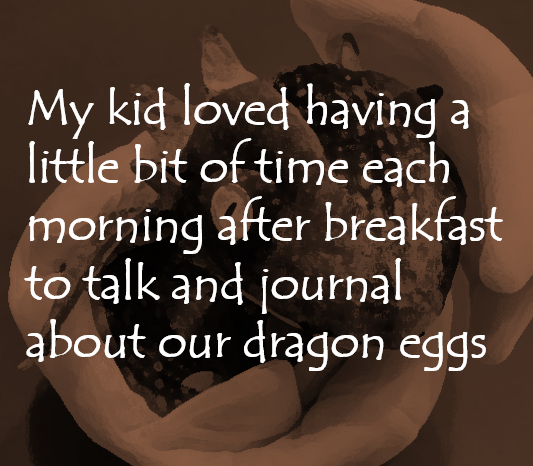
My kid loved having a little bit of time each morning after breakfast to talk and journal about our dragon eggs – he was always very excited to see what was going to happen next. He would then spend a good part of the day asking if the dragon eggs were OK or he’d start telling stories about what would happen when the eggs hatched. It was very cute, and he had a lot of fun with this TTRPG.
My overall impression of GDEC
I am kind of hooked on solo-journaling TTRPGs now! This was a great creative exercise to do with my kid, and I had a lot of fun joining too. It’s a great excuse to take a minute to just write a bit and have fun, plus, it was an easy bonding activity that promoted some good thought habits for us both. I liked the use of cards so that it’s OK with kids of any age, and the premise is also just super cute. I am definitely looking for more games like this, and I think kiddo is too!
Where to find a copy of GDEC
You can find GDEC here on itchio!
This game was a lot of fun, and I hope you get the chance to check it out! If you do, please let me know in the comments below what your thoughts are!
If you liked this post, make sure to subscribe to the TTRPGkids monthly newsletter to stay up to date on the latest reviews, tips and tricks, game and podcast list updates, and more! Thank you for playing tabletop RPGs with your kids and sharing this awesome hobby with the next generation!
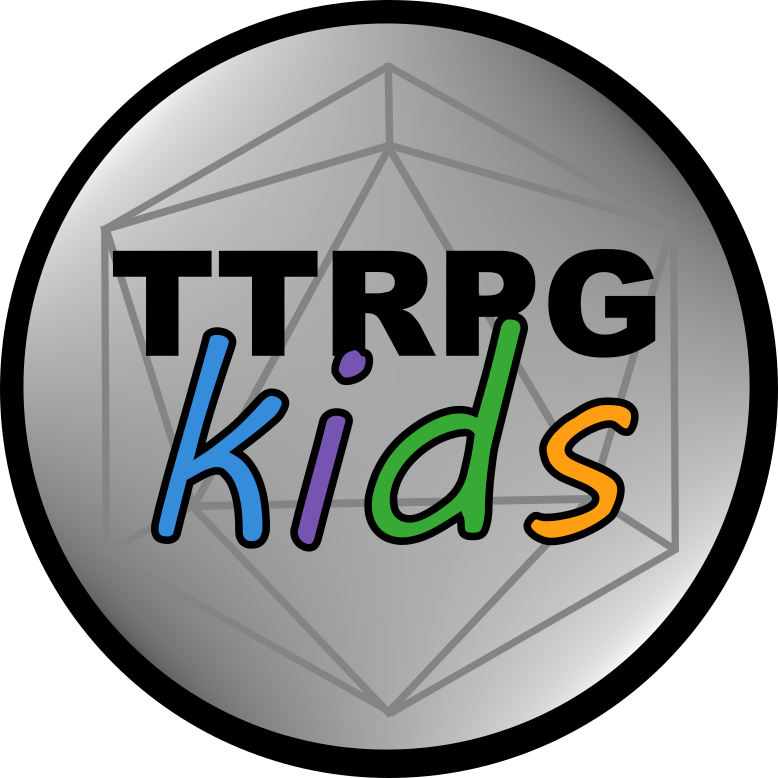
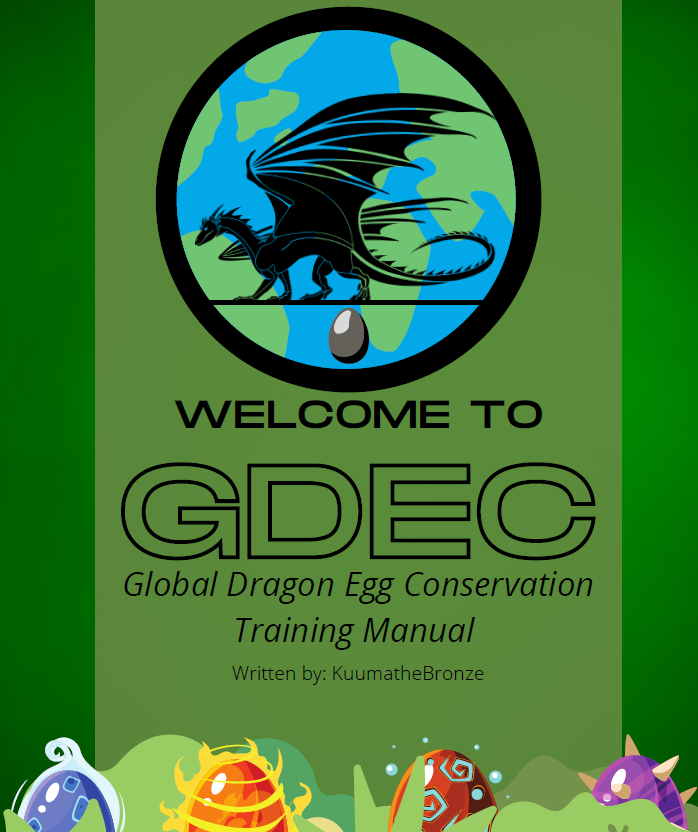
1 thought on “Solo-journaling tabletop RPG review: GDEC, Global Dragon Egg Conservation”